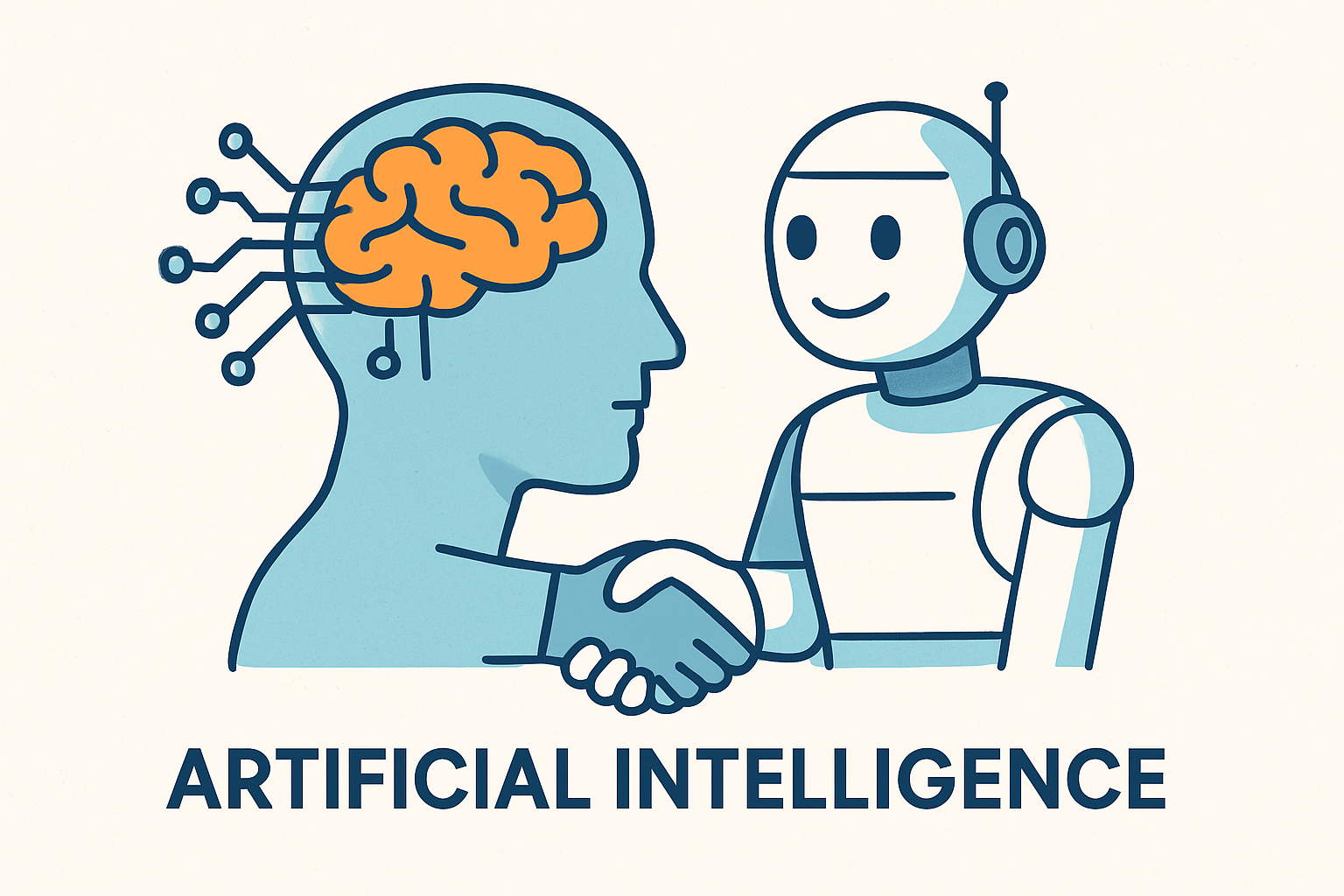In today’s fast-moving digital world, the term Artificial Intelligence — or AI — is often thrown around. From smartphones to self-driving cars, AI seems to be everywhere. But what exactly is it? Is it a robot that thinks like a human? A computer that knows everything? Let’s break it down in the simplest way possible.
Understanding Artificial Intelligence
Artificial Intelligence refers to machines or software programs that are designed to think and learn like humans. That doesn’t mean they feel emotions or have consciousness, but they are able to do tasks that usually require human intelligence. These tasks include things like recognizing speech, translating languages, identifying images, making decisions, and solving problems.
Put simply, AI is the science of teaching machines to learn from experience.
Real-Life Examples of AI
Chances are, you’ve already interacted with AI today — maybe without even realizing it. Here are a few common examples:
- Smartphones: When your phone suggests words as you type, or unlocks using facial recognition, that’s AI at work.
- Google Search: Ever noticed how Google finishes your sentence when you start typing? That’s because it has learned from millions of searches before yours.
- Streaming Services: Platforms like Netflix or YouTube recommend shows or videos based on what you’ve watched in the past — another use of AI.
- Voice Assistants: Siri, Alexa, and Google Assistant all use AI to understand your voice commands and respond accordingly.
How Does AI Work?
To understand how AI works, imagine teaching a child how to recognize a cat. You’d show them several pictures and say “this is a cat.” Over time, the child learns to recognize cats on their own.
AI works in a similar way. It is trained using a large amount of data. For example, to teach an AI system to recognize cats, it is fed thousands of images labeled as “cats.” Eventually, the system learns the patterns — the shape, color, eyes, ears — and can identify a cat in a new picture.
This process is called machine learning, and it’s one of the main ways AI systems get “smarter” over time.
Why Is AI Important?
AI is not just a cool feature — it’s a powerful tool that’s changing the world in big ways:
- Healthcare: AI helps doctors detect diseases earlier and more accurately.
- Transportation: Self-driving cars and traffic management systems use AI to improve safety and efficiency.
- Education: Personalized learning apps adapt to each student’s pace and style.
- Customer Service: Chatbots can answer customer questions instantly, 24/7.
These are just a few areas where AI is making a real impact.
Is AI Dangerous?
Like any technology, AI has its risks. Some people worry about job loss due to automation, while others are concerned about how much control AI might have in the future. However, most experts agree that AI is a tool — and how it’s used depends on us, the humans behind it.
The key is to build AI responsibly, with fairness, transparency, and ethics in mind.
Final Thoughts
Artificial Intelligence might sound like science fiction, but it’s already a part of our everyday lives. From improving the way we work to helping us in ways we couldn’t have imagined a decade ago, AI is here to stay.
The more we understand it, the better prepared we’ll be to use it wisely. And that’s not science fiction — that’s just smart living.



